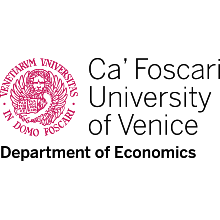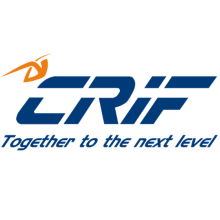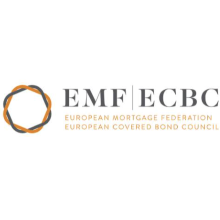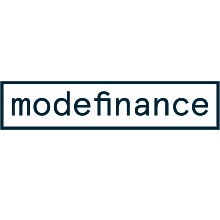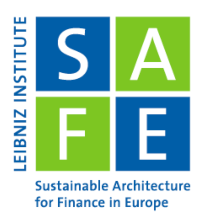TranspArEEnS
mainstreaming Transparent Assessment of Energy efficiency in Environmental social governance ratingS
The Project
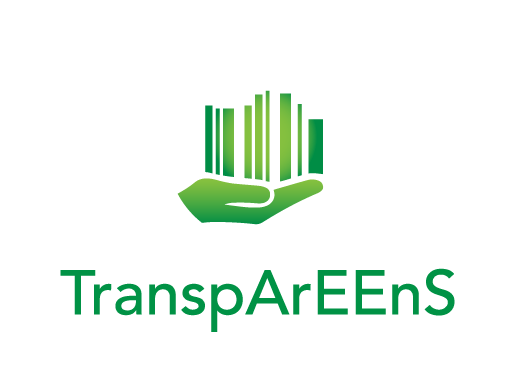
Improving access to long-term finance for Energy Efficiency (EE) projects is key to achieve the EU2030 targets and aligning the COVID-19 recovery to the European Green Deal. However, the lack of standardized disclosure of EE investments limits firms’ access to EE financing. Further, poor understanding of EE information in ESG ratings increases the risk of greenwashing, thus preventing a smooth development of the sustainable finance market. TranspArEEnS addresses these barriers by mainstreaming a quali-quantitative framework for standardized collection and analysis of firms’ EE and ESG information and the development of a standardized EE-ESG rating.
This serves as an EE-ESG filter to inform investment and financial policy decisions with regard to portfolios’ alignment to sustainability. A unique added value of this project is to cover non-listed Small and Medium Enterprises, meeting an important market need. TranspArEEnS’ EE-ESG rating will be tested in pilot case studies and capacity building sessions with leading representatives of the financial industry and supervisors. TranspArEEnS’ EE-ESG rating will be tested in pilot case studies and capacity building sessions with leading representatives of the financial industry and supervisors.
This allows to understand barriers and opportunities for its operationalization in:
- credit risk assessment;
- development of long-term EE-financing via securitization (covered bonds, European Secured Notes);
- introduction of EE-ESG considerations into monetary policies and prudential regulations.
By enhancing standardized disclosure of EE investing, TranspArEEnS will decrease uncertainty in the EE and ESG market, thus promoting the scaling up of new EE financing and investment opportunities in the EU. Moreover, it will help to mitigate the risk of greenwashing thus improving financial stability.

News
| Press Release | 789 K |
Objectives of the Project
- TranspArEEnS aims to enhance standardized disclosure of EE and ESG information at firm level, to foster access to long term financing (e.g. via securitization) and better risk assessment, while taming the risk of greenwashing.
- The EE-ESG rating developed will be best positioned to make a key contribution to enhance disclosure of firms’ alignment to EU 2030 objectives, the EU Taxonomy and ESG benchmarks, focusing on EE investments.
- TranspArEEnS builds on and complements the outputs of three previous related EU-funded projects:
- the Energy efficient Mortgages Action Plan (EeMAP);
- the Energy efficiency Data Protocol and Portal (EeDaPP);
- the Energy efficient Mortgage Market Implementation Plan (EeMMIP), including a unique added value, i.e. to cover SMEs.
Partners
Ca’ Foscari University of Venice
Ca’ Foscari University of Venice is a public University with a national and international outstanding reputation for academic excellence in both teaching and research. The Department of Economics develops knowledge and understanding of economic phenomena dealing with the complexity of global market scenarios and exploring related social, juridical, ethical and environmental implications.
A new research Center in Economic and Risk Analytics for Public Policies (VERA Center) has been created and it focuses on big data applied to social welfare and wellbeing, risk analytics and evaluation of public policies. The Department is involved in several European projects in the field of sustainable finance, Energy Efficiency and ESG criteria: EIBURS-ESG-Credit.eu, EeMMIP- Energy efficient Mortgage Market Implementation Plan; EeDaPP - Energy efficiency Data Protocol and Portal; EeMAP - Energy efficiency Mortgages Action Plan.
CRIF Spa
CRIF is a global company specialising in credit bureau and business information, outsourcing and processing services, and advanced solutions for credit and open banking. Established in 1988 in Bologna (Italy), CRIF operates over four continents and currently is the leader in continental Europe in the field of banking credit information and one of the main operators on a global level in the field of integrated services for business & commercial information and credit & marketing management.
Moreover, CRIF is included in the prestigious IDC FinTech Rankings Top 100, a ranking of the leading global technology solution providers to the financial services industry, and in 2019 completed its coverage as an AISP in 31 European countries where the revised Payment Services Directive is applicable. Today over 10,500 banks and financial institutions, 1,000 insurance companies, 82,000 business clients and 1,000,000 consumers use CRIF services in 50 countries on a daily basis.
Covered Bond & Mortgage Council - CBMC
The Covered Bond & Mortgage Council (hereafter called the Council) is an international non-profit association under Belgian Law. The objective of the Council is to represent the interests of stakeholders in the mortgage credit and covered bond industry along its whole value chain, namely covering mortgage credit origination and servicing (represented by the European Mortgage Federation – EMF) and funding (represented by the European Covered Bond Council – ECBC) at both European and international levels.
Established in 1967, the European Mortgage Federation is the voice of the European mortgage industry, providing data and information on European mortgage markets, which were worth €8.15 trillion at the end of 2020. In 2004 the EMF founded the European Covered Bond Council, a platform that brings together covered bond market participants including issuers, analysts, investment bankers, rating agencies and a wide range of interested stakeholders. ECBC members represent over 95% of covered bonds outstanding, which were worth almost €2.9 trillion at the end of 2020. To achieve its goal(s), the Council undertakes to:
- Study measures that could be adopted at European and international levels in order to create a positive environment for mortgage credit lending and funding, and to disseminate this information for the benefit of its members and other stakeholders.
- Advise EU Institutions and other relevant authorities on all questions of interest to mortgage credit lenders, in the areas of both mortgage credit origination and funding.
- Act as a global platform for knowledge sharing and exchange of best practice and as a catalyst for market-led initiatives which add value to the market, the economy and society in general through innovation, quality and transparency, for example the Covered Bond Label, the Energy Efficient Mortgages Initiative and the Energy Efficient Mortgage Label.
MODEFINANCE Srl
MODEFINANCE is a native Fintech company specialized in companies’ and banks’ creditworthiness assessment, developing Artificial Intelligence solutions for credit risk analysis and management. Thanks to the MORE proprietary methodology, modefinance is able to evaluate any company, regardless of sector, size or country: as a Fintech Credit Rating Agency (CRA) registered at a European level, the ratings issued have legal value and can be used for regulatory purposes.
With a tailor-made, cloud-based and API approach, modefinance solutions allow users to easily access a wide range of financial risk analysis tools, to automate current procedures. modefinance supports financial services, banks and businesses in the daily management of exposure risk by providing high quality, transparent and reliable evaluations worldwide.
Leibniz Institute SAFE
The Leibniz Institute SAFE is a research institute dedicated to research and research-based policy advice in all areas of finance, with a special focus on Europe. Its research program includes six research areas: Financial Intermediation, Financial Markets, Household Finance, Money & Finance, Macro & Finance, and Law & Finance. With its international and interdisciplinary group of researchers, SAFE combines the methodological and professional competences for a broad range of topics related to financial markets and financial institutions.
This also includes topics of sustainable finance, climate change and energy efficiency mortgages. A unique feature of SAFE is its Data Center, which provides data access to all the major financial and economic data providers (FactSet, Datastream, Bloomberg and CRSP/Compustat) and creates new European datasets. The SAFE Policy Center distributes and disseminates research findings to the policymakers and regulators. The main goal is to provide theory- and evidence-based policy advice on fundamental political challenges.
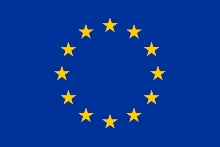
This project has received funding from the European Union’s Horizon 2020 research and innovation programme under grant agreement N° 101033869.
Last update: 17/04/2024

